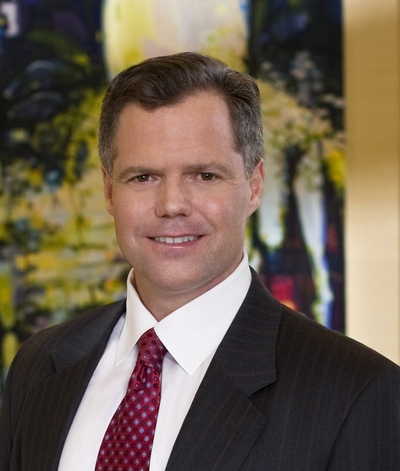Monday, May 10, 2010 | 2 a.m.
GETTING UP TO SPEED
Harrah’s Entertainment operates Total Rewards, a loyalty program it’s leveraging, for example, to reap profits at properties that weren’t as successful under previous owners. MGM Mirage CEO Jim Murren said last week he’s working to boost his company’s players club to correct the “competitive disadvantage” it’s at in regard to customer rewards.
Sun Archives
- No gambling required: Harrah’s widens rewards program (4-27-10)
- Harrah’s secret: Cut costs, back to basics (3-5-10)
- Harrah’s debt gamble (2-15-10)
- Harrah’s gets OK for Planet Hollywood purchase; job cuts planned (2-3-10)
- Harrah’s to take over Planet Hollywood management (1-15-10)
- Harrah’s buys Planet Hollywood debt (9-15-09)
- Harrah’s expects annual savings of $500 million (3-17-09)
- Harrah’s reports loss, says LV properties hit hard (3-13-09)
- Harrah’s announces plan to reduce debt burden (3-4-09)
- Strip building boom, buyouts were ill-timed, and many see more pain in ’09 (3-1-09)
- Harrah’s wants class-action suit over debt swap dismissed (2-27-09)
- Harrah's hit with class-action lawsuit over debt plan (2-16-09)
- Harrah’s seeking $740 million from credit line (2-13-09)
- Harrah’s makes cost-cutting moves (2-12-09)
Last summer, MGM Mirage sent offers to Las Vegas residents who had previously gambled at the Bellagio, offering them a free stay at the resort.
Business was down, so the hope was that these local guests, much like tourists, would spend money on other attractions during their stay.
But the offers had some locals scratching their heads. Many don’t spend much time on the Strip, and they have homes to return to, so they would have preferred free buffets or some other comp over free rooms.
Residents didn’t get free room offers from Harrah’s Entertainment resorts such as Caesars Palace. It has maintained a high occupancy rate in the recession in part because of a corporate loyalty program that rewards people who gamble at Harrah’s smaller casinos across the country with free rooms at major casinos in resort cities such as Las Vegas. Offering hotel rooms to locals would not be a default method of operation for Total Rewards, the high-tech loyalty program operated by Harrah’s. The program uses complex algorithms to sort names by spending habits and preferences to determine what freebies and discounts customers would most prefer. Locals would be less likely to receive free rooms than tourists would, and might instead get gambling offers or meal discounts.
The end result of all this sorting and filtering is dramatic.
As the top executive of Harrah’s competitor MGM Mirage publicly admitted last week, Harrah’s properties generally earn a higher profit on each occupied hotel room — the total amount spent at the property by each customer — than hotels owned by MGM Mirage.
Not having a comparable loyalty program “has been a competitive disadvantage for this company in the past decade,” MGM Mirage CEO Jim Murren said Thursday in conjunction with the company’s first-quarter earnings report.
While his company has a players club across its many properties, it has lacked the technology to sort information on gamblers’ spending habits and personalize offers accordingly, Murren said.
Instead, the company has relied on mass mailings, which isn’t a particularly efficient or practical method of giving customers what they want.
MGM Mirage also expects to reward customers for money spent on resort offerings besides gambling. Harrah’s recently expanded its Total Rewards program to include rewards for nongambling spending on hotel rooms, meals, retail purchases and entertainment.
While giving Harrah’s credit for offering a superior loyalty program, Murren also took several swipes at his chief competitor, saying the company’s marketing engine has managed to boost earnings at properties with fewer amenities than MGM Mirage properties.
“Many of our competitors with far less quality (hotels and amenities) have done more with less,” Murren said. “It’s time to do more with what we have ... we have the highest quality resorts in this industry and the most diverse offerings.”
Indeed, while Harrah’s is the country’s largest and most geographically diverse casino company, MGM Mirage owns or operates the largest chunk of Strip casinos, not to mention more restaurants, bars, showrooms, pools and nightclubs. The company also owns both of the Strip’s major arenas, so it controls some of the Strip’s biggest entertainment acts and sporting events — each a potential marketing opportunity, and an occupied room, if the price is right.
In August, the company promoted Mandalay Bay President Bill Hornbuckle to the new position of chief marketing officer to oversee the effort to develop a more advanced and uniform loyalty program.
MGM Mirage has since hired marketing and technology managers from outside the casino industry and signed contracts with consultants to assist.
Similarly, Harrah’s — taking its cue from airlines and retailers with more advanced customer-tracking software — imported talent to help the company revamp its Total Rewards program years ago.
The recession is pressuring companies to find new ways of making money that they had the luxury of overlooking, or postponing, when times were good. Also, the profit potential of Total Rewards has become more apparent to competitors in recent years as Harrah’s has added to its casino empire. One example is Imperial Palace, a modestly profitable casino that is generating tens of millions more for Harrah’s than it did under previous owners, largely because of Total Rewards, according to industry experts.
Likewise, MGM Mirage is expecting to reap a windfall by simply packaging more appealing offers to existing customers. With a database of more than 60 million people, the company has a lot to work with.
If the company’s new data-mining tools work as expected, locals who drop a few dollars in a slot machine at Bellagio shouldn’t necessarily expect to receive a free room — though they might be offered something more suitable.


Join the Discussion:
Check this out for a full explanation of our conversion to the LiveFyre commenting system and instructions on how to sign up for an account.
Full comments policy